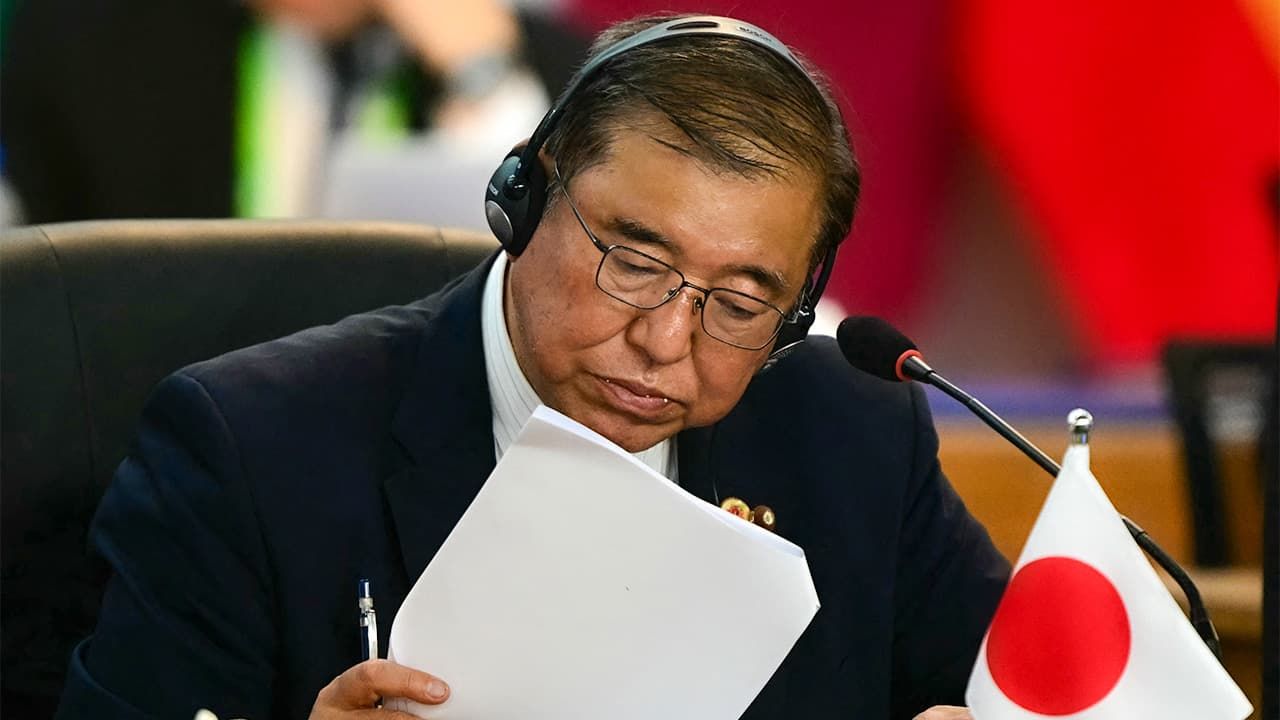
Little Improvement Seen for Ishiba’s Public Support in November: Media Surveys
Politics- English
- 日本語
- 简体字
- 繁體字
- Français
- Español
- العربية
- Русский
Negative Takes on the Rise
Japan’s main media organizations have published the results of their opinion polls covering the administration of Prime Minister Ishiba Shigeru during the month of November. While the October numbers, posted during the first month after he launched his cabinet, were more or less favorable, with four out of six surveys giving him support ratings above the 50% line, the November numbers were harsher, with a high of just 46% in the Nikkei poll and a low of 28.7% in the Jiji Press survey.
Ishiba’s support rating rose slightly in three polls and fell in the remaining four; clear gaps were seen between approval and disapproval ratings in all polls except that from Nikkei, which produced the same 46% figure on both sides.
The Mainichi Shimbun poll saw the highest disapproval rating for the prime minister, at 50%, while the lowest was in the NHK poll, at 37%. Disapproval numbers dropped in just the Yomiuri Shimbun and Kyōdō News surveys, rising in all others.
Public Support for the Administration (November 2024)
Approval
| Asahi Shimbun | 34% (–12) |
| Sankei Shimbun | 43.8% (–9.5) |
| Jiji Press | 28.7% (+0.7) |
| Yomiuri Shimbun | 43% (+9) |
| NHK | 41% (±0) |
| Nikkei | 46% (–5) |
| Kyōdō News | 40% (+7.9) |
| Mainichi Shimbun | 31% (–15) |
Disapproval
| Asahi Shimbun | 47% (+17) |
| Sankei Shimbun | 49.8% (+14) |
| Jiji Press | 38.3% (+8.2) |
| Yomiuri Shimbun | 42% (–9) |
| NHK | 37% (+2) |
| Nikkei | 46% (+9) |
| Kyōdō News | 38.8% (–13.4) |
| Mainichi Shimbun | 50% (+13) |
Notes: Numbers in parentheses indicate point changes from the previous month’s results. Questions asked to respondents and methodologies differ for each organization; Jiji uses individual interviews, Mainichi uses texts sent to mobile phones and automated response queries sent to fixed phones, and the other companies use randomized calls to mobile and fixed phone numbers. Asahi and Sankei carried out their surveys on November 2–3, Jiji and Yomiuri around November 8–12, NHK, Nikkei, and Kyōdō around November 15–17, and Mainichi on November 23–24.
Iffy Conditions for a Still-New Administration
Four of the surveys turned out disapproval numbers higher than approval ratings. This is a dismal outcome when viewed over the longer term, too: Mainichi, for example, has not seen a new cabinet’s disapproval outstrip its approval number a month into its term since 2008, when Asō Tarō launched his government. His administration was short lived, lasting just a year until the opposition Democratic Party of Japan took power and formed a new government in 2009.
It is worth noting, though, that Ishiba is still enjoying higher ratings than his predecessor, Kishida Fumio, did toward the end of his term in office. The Jiji Press surveys had Kishida below the 20% mark up through the last months of his administration, but Ishiba is still maintaining the roughly 10 percentage point leap he secured after beginning his own government.
The extraordinary session of the Diet that began on November 28, expected to last for 24 days, will see plenty of political action, including discussion of a supplementary budget, debate on raising the “¥1.03 million wall” by hiking the income tax exclusion limit from its current level to prompt more people to join and stay in the workforce, and tackling the question of political reform in the wake of the ruling Liberal Democratic Party’s fundraising scandal. In commentary attached to its survey results, the Yomiuri Shimbun notes that Ishiba will continue to face difficulties as the head of a minority government.
(Originally published in Japanese on December 5, 2024. Banner photo: Prime Minister Ishiba Shigeru at the G20 summit in Brazil on November 18, 2024. © AFP/Jiji.)

